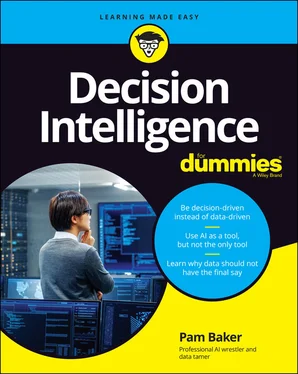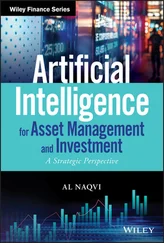Sentiment and behavioral analysis is contextual data mining to discover and analyze the subjective expressed responses (sentiments or feelings) about a brand, product, service, idea, political candidate, and so on in online conversations or customer channels (conversations and customer ratings found in texts, on websites and blogs, in voice recordings or streams during phone calls, and app rating systems. Did you rate that Door Dash driver’s service in the app? Yeah, that sort of thing!) Behavioral analysis can extend beyond sentiment analysis to include things like how long you spent reading a news article on your phone and how many times you return to a website, to what time of day and what device you normally use to post on Facebook.
Chatbots and conversational systems frequently appear as a popup sales or customer service chat box on websites where you can ask questions about a product or service or your account and get an automated answer from the resident AI-powered chatbot. Some of these are so good it’s hard to tell they aren’t human customer service agents. Data on the user and on the stated problem is collected and analyzed to rapidly respond with answers the user needs. Examples of other conversational systems include every digital assistant you’ve ever heard of: Alexa, Siri, Google Assistant, Bixby, and Cortana. Each is a data king, with Alexa and Google Assistant reigning over two of the largest kingdoms in terms of technical and market prowess.
Autonomous systems are actually a network or a collection of networks that are all managed by a single entity or organization. Data is live streamed and typically analyzed at the sensor or gateway level, although some data is often sent to a data center for additional analyses later. Think the Internet of Things, such as self-driving cars, robotic systems in manufacturing, and smart cities that use information and communication technologies (ICT) to increase operational efficiency, share information with other systems (such as self-driving cars), and promote sustainable development.
There’s no question that the above list is populated with wonderous achievements that would not be possible (or at least not at such huge scales and fast speeds) without data, analytics, and AI. Nevertheless, the promised “actionable insights” produced by analytics and presented in many of today’s fancy visualizations and dashboards to business users are often merely pointers. They point to something you might want to use as a key factor in your decision, but they aren’t in a position to make that decision for you. You have to conjure some mad data interpretation skills and do some creative problem-solving on your part to figure that one out on your own.
Pointers (also known as actionable insights ) are typically useful in so far as they go. The trouble is that they point to possible decisions but don’t suggest any. Users are often unsure about what action to take, or which option would produce greater value for the business. By contrast, the decision is the be-all-and-end-all of decision intelligence, and everything else in the process supports that decision.
 Whether data driven or decision driven, in both cases humans are the decision makers in this context. It’s just that they decide at the tail end of the process in traditional analytics, whereas they decide in the lead position of the decision intelligence process. The starting point for the decision maker matters in terms of the level of control a person has over the impact and value. It’s hard to exert much control from the rear.
Whether data driven or decision driven, in both cases humans are the decision makers in this context. It’s just that they decide at the tail end of the process in traditional analytics, whereas they decide in the lead position of the decision intelligence process. The starting point for the decision maker matters in terms of the level of control a person has over the impact and value. It’s hard to exert much control from the rear.
Disgruntlement with the limitations of traditional data mining is growing. Increasing frustration often leads to both the business side and the AI and IT sides starting to wonder aloud: “What’s the point?” But as geeks and businesspeople are wont to do, they realized that there is a point — they just hadn’t arrived at it yet.
Eventually, the data driven model was flipped into a decision driven model as people experimented with making the point first and working their way back to the start from there. Decision intelligence is the name of the game where the gamers can all be winners. Now every move made has a point — a point that has value. That’s because the point is based on a decision aimed at creating a specific business impact.
The current turn to decision intelligence
Several leading AI luminaries and tech giants have been pioneers in, and first adopters of, decision intelligence. They've already added the title of chief decision scientist to their leadership ranks. One example is Google’s eminent chief decision scientist, Cassie Kozyrkov, who spends her days at Google democratizing decision intelligence and developing a more reliable AI approach. She also teaches it to others via conference speeches, YouTube videos, and writings in many online publications.
Kozyrkov appears to embody decision intelligence, partly because of her formal training in economics, mathematical statistics, psychology, and neuroscience. Decision intelligence incorporates all these disciplines — and then some. Although not all who share her title possess the same skill mix, they nevertheless do share strong critical thinking skills as well as a thorough understanding of creative problem-solving strategies, decision theory, and decision science approaches. (For those not familiar with the term, decision science focuses on decisions as the unit of analysis; it is the interdisciplinary application of business, math, technology, design thinking, and behavioral sciences to the decision-making process.)
Every day, more leaders are stepping forward to endorse the decision intelligence framework and explain its workings. Many of them work in AI, but others hail from disciplines collectively known as the decision sciences. Business leaders outside the technical domain are also catching on and reveling in their official return to the helm, as opposed to following data’s lead (which most never did anyway), and armed with a better strategy. They’re also happy about being able to keep their traditional analytics and tools. You don't win battles by limiting your options or abandoning your investments.
Deputizing AI as Your Faithful Sidekick
At its essence, AI automates decisions that are executed rapidly in an exceedingly large number of instances, often simultaneously. You train it by having it work with task-related data sets so that it can recognize what it’s looking at in other data sets and learn from the patterns it finds there. Then it makes decisions based on well-defined business rules. (The reality is a good bit more complicated than that, but that's pretty much the gist of it.)
For example, banking institutions use AI to automatically decide which loan applications to approve and which to reject. This is how you can get an answer on your loan application within seconds, no matter how many other people are applying for loans at the same time you are. AI makes these decisions based on the rules it has been given, such as a range of acceptable credit scores, length and types of employment history, items of public record, and other such risk weighting values. AI is able to make such decisions on each individual application, yet at enormous scale and all of it within seconds or minutes. Therefore, borrowers can receive immediate responses to their applications, and lenders can secure more loan deals in minutes than they previously were able to secure over a period of months and at the larger payroll cost of many manhours.
Читать дальше

 Whether data driven or decision driven, in both cases humans are the decision makers in this context. It’s just that they decide at the tail end of the process in traditional analytics, whereas they decide in the lead position of the decision intelligence process. The starting point for the decision maker matters in terms of the level of control a person has over the impact and value. It’s hard to exert much control from the rear.
Whether data driven or decision driven, in both cases humans are the decision makers in this context. It’s just that they decide at the tail end of the process in traditional analytics, whereas they decide in the lead position of the decision intelligence process. The starting point for the decision maker matters in terms of the level of control a person has over the impact and value. It’s hard to exert much control from the rear.










